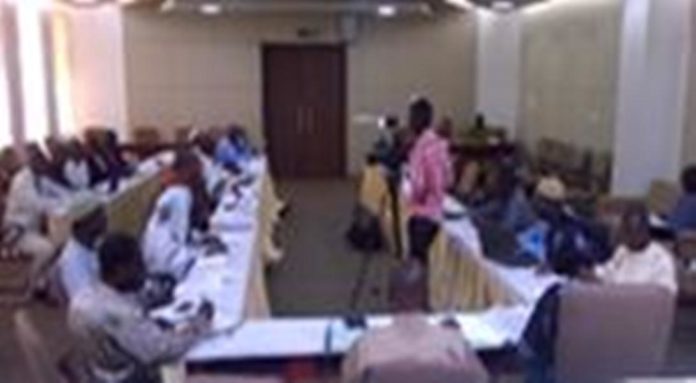By: Kebba AF Touray
Barely two weeks after their visit to the health facilities, the National Assembly Select Committee (NASC) on Health, has prepared and presented its preliminary report on the status of the health sector.
The report highlights challenges facing the health sector, as well as conclusions and recommendations made on the way forward, for the provision of good health care service delivery and the smooth running of the sector. The report also recommended the effective utilization of resources in line with the National Health Policy and the Health Strategic Plan of 2010-2014.
The NASC Chairman Ousman Sillah, said from their visit to health facilities, they have observed various challenges hampering the operations of the sector; that these include but are not limited to inadequate staffing and payment of allowances, availability of specialists doctors, staff motivation, staff attrition, lack of adequate electricity supply to run equipment, inadequate disposal of medical waste, poor maintenance of ambulances, poor working environment and structures amongst others.
Bakary Camara, the Member for Kiang Central, Saikou Marong Member for Latrikunda and Amadou Camara Member for Nianija, disclose the abnormalities in the membership of hospital management boards, constraints on donor funding of the delivery of health services, lack of resources in the sector, shortage of staff amongst others, as conclusions of the first phase of their visit.
They cited the expansion and restructuring of Ministry of Health and Social Welfare, increasing access to emergency obstetric care to reduce maternal deaths, activation of the donor coordinating mechanism to coordinate their inputs, review of cost of service delivery at primary, secondary and tertiary levels, revision of salaries, incentives and housing loans for health workers among other matters, as the way forward.
Cherno Omar Barry, the Permanent Secretary at the Ministry of Health, assured the committee that the health sector is working on a comprehensive report, which will be tabled before them, upon completion; that there is need to diagnose the entire Ministry to enable them address issues affecting the sector.
He said the policy context will be more of a preventive measure, owing to the high cost of health, which is unsustainable, making them concentrate on the curative measure, by strengthening hospitals and major health facilities, due largely to the increase in patients in the health centers.
“We will refocus on primary health care, give more attention to timely interventions to reduce the burden in the health facilities. There are lots of efforts in the areas of nutrition and sensitization, so that we will teach the public on the prevention, to reduce the burden of hypertension, diabetes and stroke”, he said.
He disclosed that the primary source of funding for the health sector are the donor agencies and decried the inadequate budgetary allocation to his Ministry as inadequate; that the Finance Ministry has cut down the recurrent budget, which is impacting negatively in their functions.
Barry congratulated donor partners for their humanitarian support to the health sector. Other top brass of the health sector also call on the relevant stakeholders to intervene in ensuring that the sector is adequately funded and supplied, to be able to care and deliver to the general public.



















